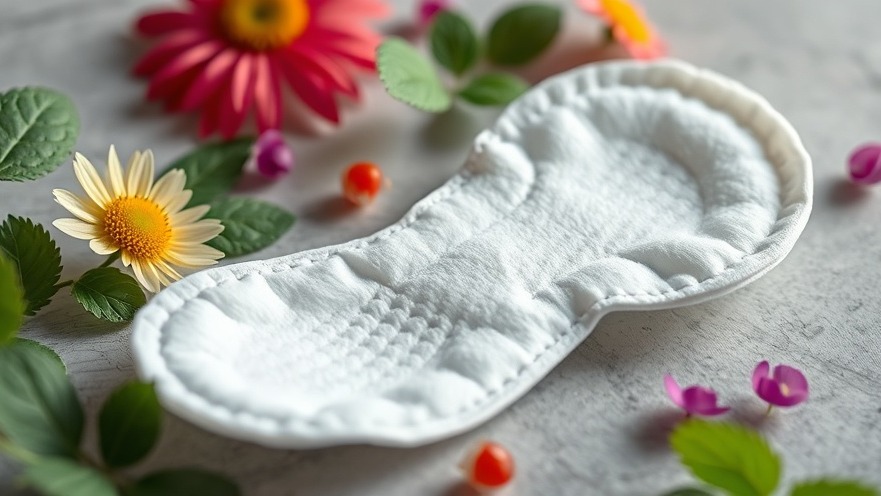
Transforming an Invasive Problem into a Sustainable Solution
In the beautiful lakes of Pune, India, water hyacinth has emerged as an invasive menace. This exotic plant, known for its vibrant purple flowers, has proliferated to such an extent that it chokes sunlight, disrupts ecosystems, and diminishes fish populations. Yet, in a surprising twist, this troublesome weed is providing an innovative solution for women's hygiene, showcasing the potential for waste repurposing in promoting environmental sustainability and women's health.
Crafting Solutions: The Vision Behind Biodegradable Sanitary Pads
Pooja Singh, an assistant professor at the Symbiosis Center for Waste Resource Management, recognized the dual challenge of managing water hyacinth infestations and addressing menstrual hygiene needs. Through collaborative discussions in her lab, she proposed the creation of biodegradable sanitary pads utilizing this invasive species as a key ingredient. By transforming waste into valuable products, Singh's initiative embodies the 'waste to wealth' concept, aiming not just to clean up the environment, but to empower women as well.
Addressing Waste Management and Health Issues
The significance of Singh's initiative goes beyond menstrual hygiene. Conventional sanitary pads often contribute to environmental degradation due to their reliance on synthetic materials, which are non-biodegradable and laden with toxins. This poses serious challenges for waste management in regions like Pune, where biomedical waste disposal systems may be inadequate. In contrast, Singh's biodegradable pads promise to reduce both pollution and health risks while fostering financial independence for women in rural communities.
Embracing Local Materials: Community Empowerment and Economic Opportunities
Utilizing locally sourced materials such as water hyacinth not only addresses an ecological problem but also opens up economic opportunities for local women. This approach enhances women's empowerment by providing them with access to natural resources and promoting sustainable manufacturing practices. As health practitioners, it’s essential to advocate for initiatives that empower communities and encourage self-sufficiency.
The Intersection of Health, Environment, and Technology
As concierge health practitioners, staying informed about emerging trends that integrate health and environmental sustainability is crucial for patient care. Singh's research presents a model for how health initiatives can directly impact ecological sustainability, thereby improving community health outcomes. Furthermore, if such innovations become widespread, they may help alleviate the burden of menstrual hygiene management on healthcare systems, particularly in developing countries.
Future Implications: What Lies Ahead for Sustainable Health Solutions
Looking forward, the integration of technology with ecological solutions represents a promising frontier. Importantly, Pooja Singh's research inspires future projects that draw on local waste materials as raw inputs for various healthcare products. As awareness increases, healthcare practitioners must adapt to evolving consumer preferences that prioritize sustainability, thus fortifying their practice against competitive pressures in a rapidly changing market.
Conclusion: An Urgent Call for Action and Communication
The developments surrounding water hyacinth and biodegradable sanitary pads underscore the urgent need for healthcare professionals to engage with environmental sustainability narratives. Exploring the innovative strides being taken in health technology, practitioners can guide patients toward sustainable choices that contribute to ecological well-being. We encourage practitioners to share and promote these findings within their communities, fostering a conversation on sustainable health practices and innovative solutions.
 Add Row
Add Row  Add
Add 




Write A Comment